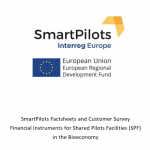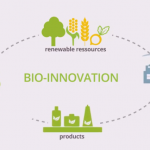Pilots4U Policy Recommendations to strengthen the European landscape of open-access infrastructure
Pilots4U aimed to set up a network of open access pilot and multipurpose demo-infrastructures for the European bio-economy. Access to such open access infrastructures are the most cost-effective manner to support the deployment of industry-driven innovations in the bio-economy market.
Typically, large-scale innovation infrastructures have very high initial cost and then require further investment and maintenance costs to retain capability. Therefore, supporting innovation policies at a regional, as well as at a European level, is of utmost importance to safeguard the long-term existence of these innovation accelerators, to support the delivery of highly skilled jobs. This report with policy recommendations contains a set of key messages developed by the Pilots4U project with the aim to strengthen the European landscape of open-access infrastructure











